
MinerAlert

MinerAlert
We are excited to invite you to our series of seminars for the One Water Cluster, and co-hosted by Centennial Museum. The seminar series is open to the UTEP community and the public. All presentations will be followed by discussion and refreshments!
We look forward to seeing you there to join your colleagues for an exciting talk and discussion. Also please forward this message and attached flyer to your colleagues.
Three One Water Cluster seminars will take place this Fall 2022 semester in the IDRB Auditorium 2.204 at 3:30 pm. The presentations will be followed by discussion and refreshments!
September 15, 2022
Our first presenter is Dr. Alfredo Granados, Department of Civil and Environmental Engineering, Universidad Autónoma de Ciudad Juárez. For this discussion, he will focus on “Using artificial intelligence in irrigated agriculture to prevent aquifer depletion in a semiarid watershed.” We look forward to seeing you there!
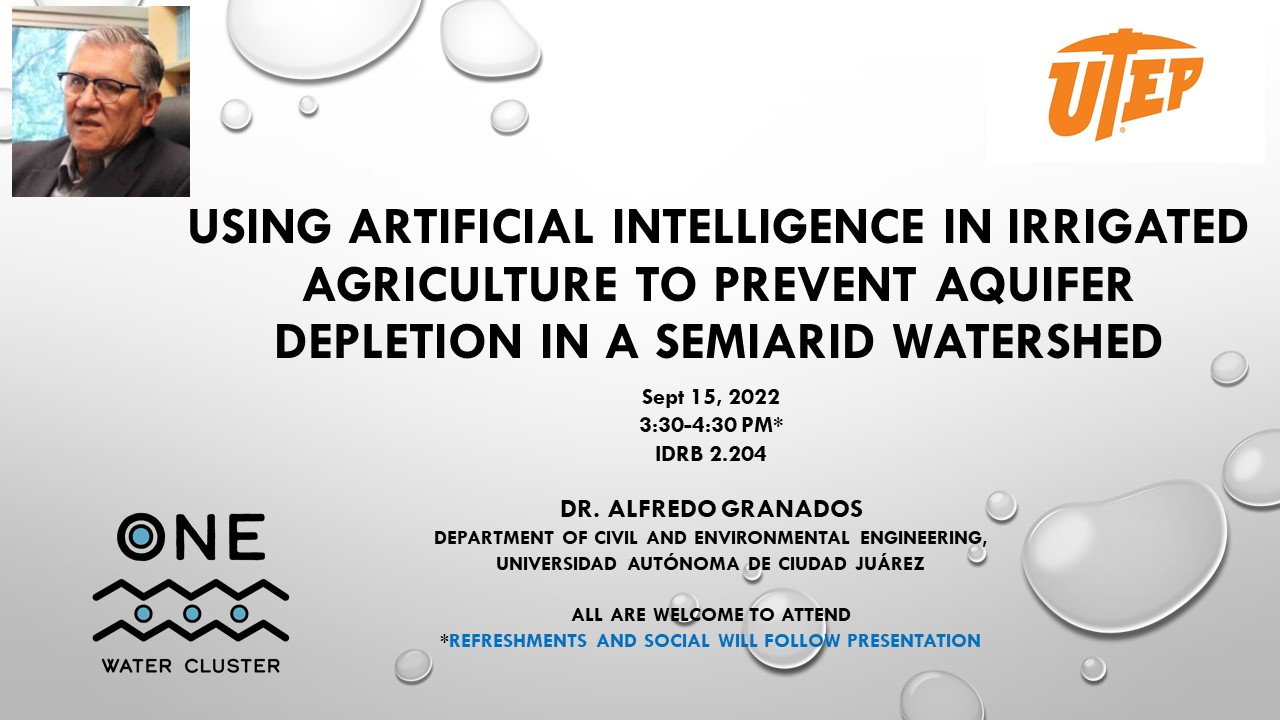
October 20, 2022
Our second presenter is Dr. Dave Gutzler, Professor, Earth and Planetary Sciences, NMSU. For this discussion, he will focus on “The End of Reliable Water Supplies in the Upper Rio Grande Basin.” We look forward to seeing you there!
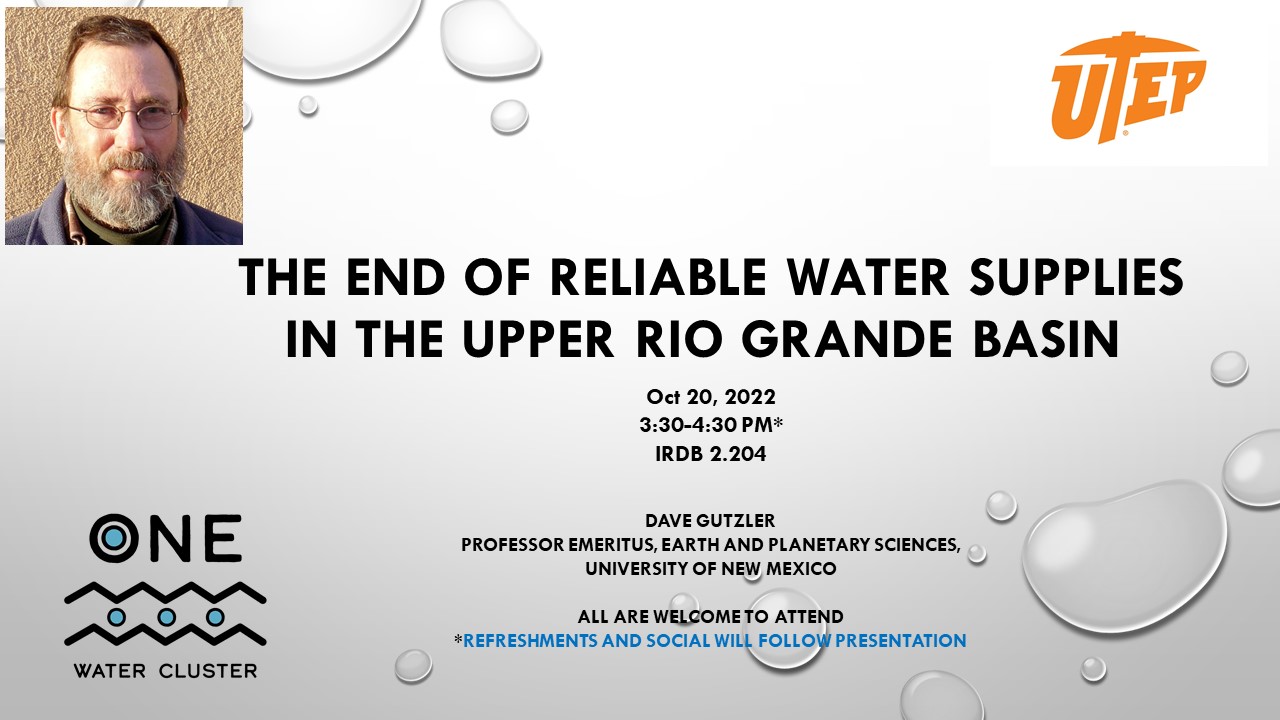
November 3, 2022
Our third, and final, presenter is Dr. Paola López Ramírez, Rubin Center for the Visual Arts. For this discussion, she will focus on “Experiencing the Bosque: Performance-making, Community Engagement and Environmental Stewardship.” We look forward to seeing you there!
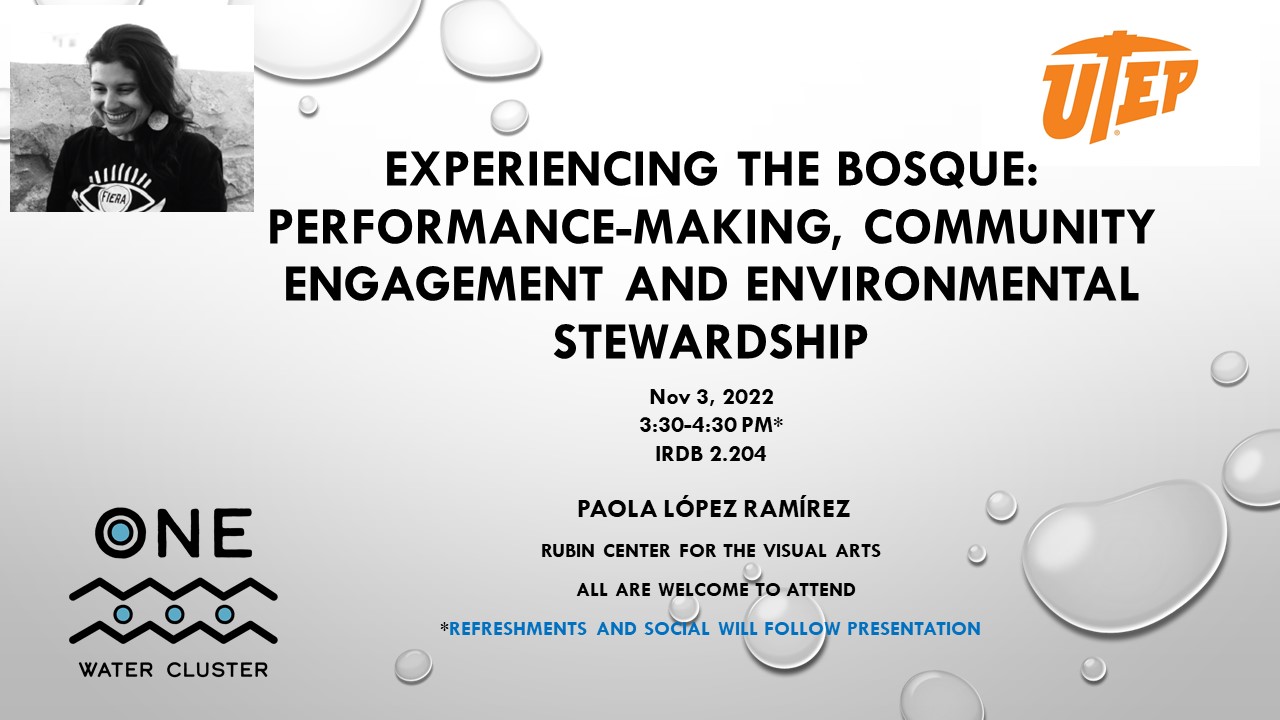
February 24, 2022
Our first presenter was Dr. Lixin Jin, an Associate Professor in the Department of Earth, Environmental, and Resources Sciences. Her research focuses on the complex interaction of water, air, biota, and rocks in natural and managed ecosystems in drylands.
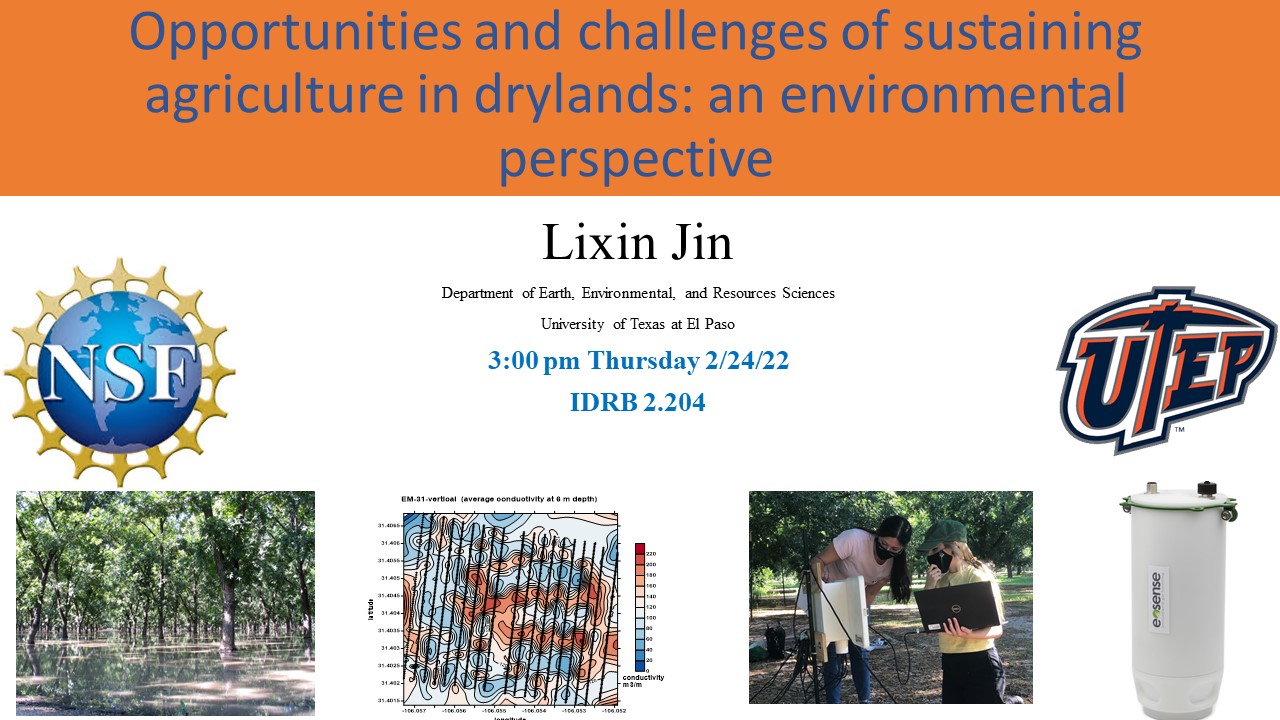
April 28, 2022
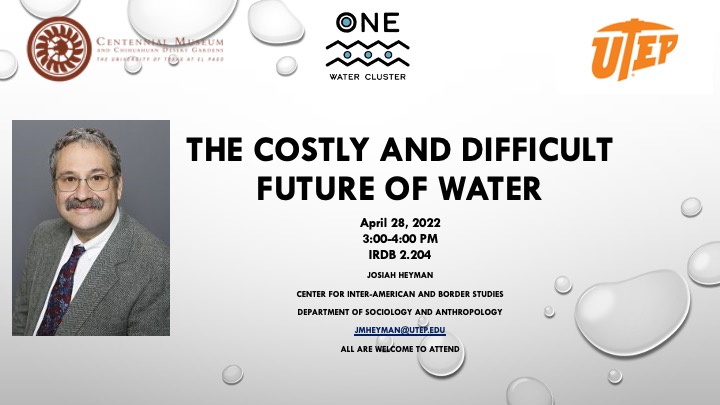
Abstract
I suggest that future water supplies will become more costly and difficult. The meaning of costly is evident; that of difficult requires a bit of elaboration. Difficult indicates that obtaining a sufficient fresh water supply for demand will take more complex activities, infrastructures, and technologies. (Certainly, conservation of water can and should be an important response also, especially in the over-developed United States.) The drivers of these changes include: depletion of fresh groundwater and intrusion of brackish water; lower average supplies of river water due to climate change in headwaters regions; and increased demand due to population growth (balanced against per capita demand decrease), change in crop mix, and longer, hotter water use seasons. Examples of costly and/or difficult responses to these drivers are desalination, direct potable reuse, and long-distance importation. An important point is that despite widespread discourse, we are not running out of water (even in a very dry region such as this); we are running out of the cheap and easy water around which our social and economic institutions have been built. The change is an important example of the phenomenon of “transition,” major historical resource-technology changes with significant human and environmental impacts. The work we are doing on this transition draws attention to a social (environmental) justice implication, the rapid increase in water bills for poor to very poor people. El Paso has a progressive pricing policy, but this may not be enough in the present conjuncture. I also discuss initiatives in other places to handle water billing impacts and risks of cut-offs. This talk describes work that I am doing jointly with Alex Mayer and Erica Martinez.